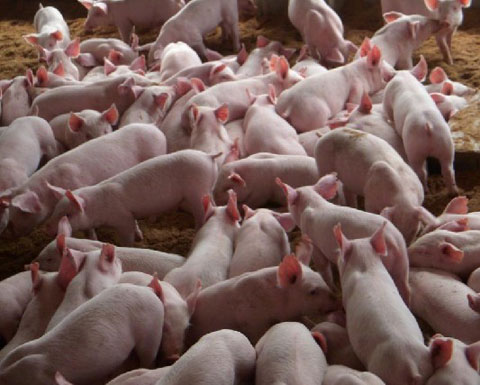The growth delay of piglets after weaning is due to the limitation of digestion and absorption capacity, insufficient production of hydrochloric acid and trypsin, and sudden changes of feed concentration and feed intake. These problems can be overcome by reducing dietary pH with weak organic acids. The main activity of organic acids is related to the decrease of gastric pH value, which transforms inactive pepsinogen into active pepsin. Organic acids can inhibit bacteria and kill bacteria. Organic acids can minimize the excretion of supplementary minerals and nitrogen, because they form complexes with minerals, which help to improve their bioavailability. Organic acids can also improve the apparent total digestive tract digestibility and growth performance. In a word, organic acids and their salts improved the protein utilization rate and production index of weaned piglets.
Calcium propionate can not only improve the activity of pepsin, but also improve the utilization rate of protein, which is beneficial to the environment and production economy. Low pH value can also improve the digestibility of nutrients by changing the villus height and crypt depth of small intestine. This phenomenon can be explained by the fact that the protein in breast milk (casein) requires a pH value of 4 in the pig's stomach in order to coagulate, precipitate and achieve a maximum digestibility of about 98%.
Organic acids are also considered as effective preservatives, which can protect stored feed from the growth of harmful bacteria or fungi. Over time, the improvement of feed quality may further help to improve growth performance. The main function of acidifier to store feed ingredients is to reduce the pH value of feed.

Organic acids can not only inhibit bacteria, but also kill bacteria. These effects depend on their content. These acids can be effectively used with other feed additives.
Post time: Jun-03-2021






